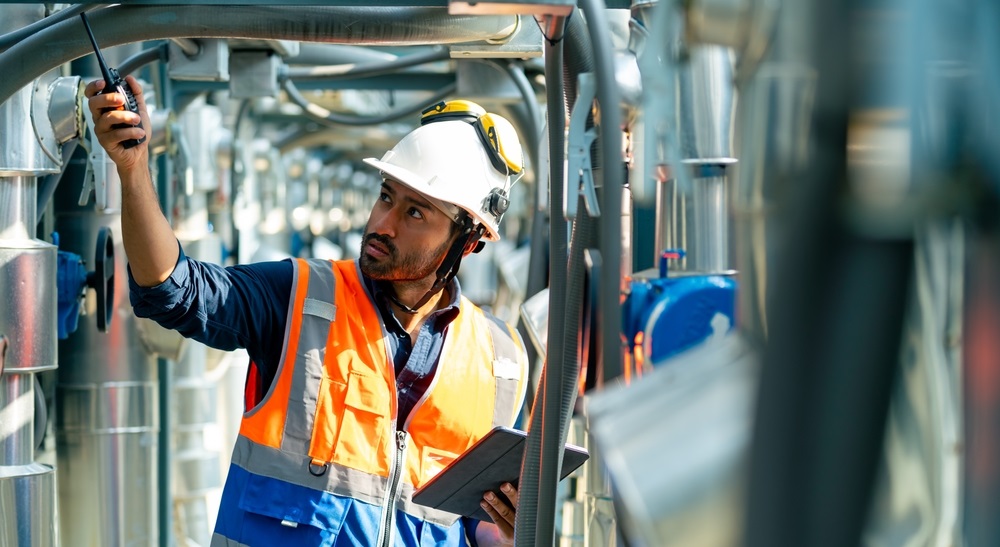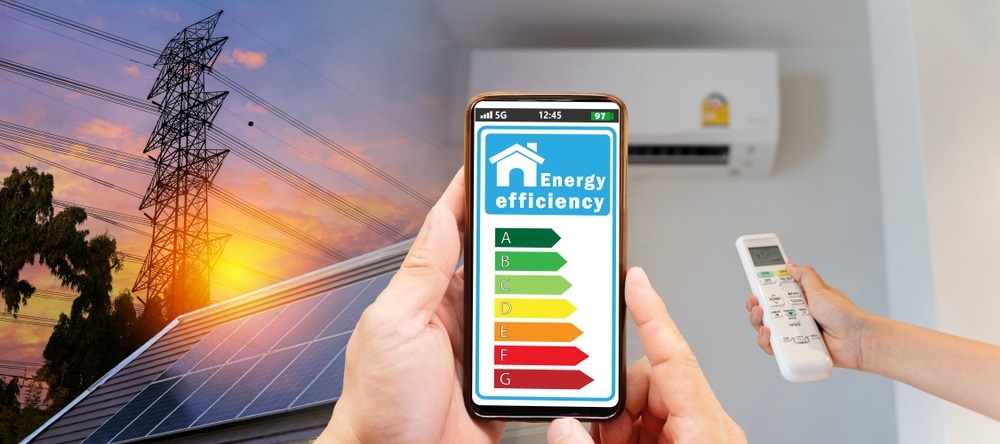At Pelican Coast Electric, we believe that understanding your property’s energy consumption is the first step toward reducing costs, improving comfort, and contributing to a more sustainable future. If you’ve ever wondered what is energy audit and how it could benefit your home or business, you’re in the right place. Whether you’re trying to lower your energy bills, enhance the energy efficiency of your property, or reduce your carbon footprint, a professional energy assessment can help. In this blog post, we will discuss what an energy audit is, the home energy assessment process, the importance of energy audit, and how the home energy score program can provide valuable insights into your home’s energy use.
What is Energy Audit?
An energy audit is a comprehensive assessment of a building’s energy consumption and efficiency. It helps identify problem areas where energy is being wasted and recommends energy efficiency upgrades to optimize energy usage. Whether you’re concerned about high energy bills or just looking to improve the overall building performance, an energy audit can help you identify where your property is consuming too much energy and how to correct that.
During a detailed energy audit, a certified home energy auditor will evaluate several key aspects of your property, including insulation, heating and cooling systems, lighting, air leakage, appliances, and more. Specialized tools, such as infrared thermography and blower doors, may be used to detect air leakage and other hidden inefficiencies that are difficult to spot with the naked eye.
The Importance of Energy Audit for Homes and Businesses
Why Should You Conduct a Home Energy Audit?
An energy audit is particularly valuable for homeowners looking to reduce their utility bills, improve comfort, and increase the overall energy efficiency of their homes. Here are some key reasons why a home energy assessment is so crucial:
- Lower Utility Bills: One of the most immediate benefits of an energy audit is cost savings. By identifying and addressing inefficiencies like outdated appliances or insufficient insulation, you can lower your energy bills significantly.
- Increased Comfort: Air leakage, poor insulation, or inefficient HVAC systems can lead to uneven temperatures throughout your home. An energy audit helps identify these issues and allows you to address them, ensuring a more comfortable living environment.
- Improved Indoor Air Quality: Poor ventilation and air leaks can cause moisture buildup and allow pollutants to enter your home. A professional home energy audit will highlight these issues and suggest improvements to ensure better air quality.
- Increase Property Value: Homes that are energy-efficient tend to have higher market value. Upgrading insulation, windows, and HVAC systems based on the findings of your home energy assessment can increase your home’s appeal to potential buyers.
Why is an Energy Audit Important for Businesses?
For businesses, conducting an energy audit offers a variety of benefits that can enhance operations and improve sustainability. Here’s why businesses should invest in an energy audit:
- Cost Savings: Businesses often face high energy bills due to inefficient lighting, heating, or air conditioning systems. A detailed energy audit can pinpoint the problem areas and help businesses implement energy efficiency improvements, which can lead to significant savings.
- Environmental Impact: As businesses become more conscious of their environmental footprint, an energy audit can provide the necessary steps to adopt more sustainable practices. This includes switching to clean energy sources, optimizing heating and cooling systems, or using heat pumps instead of traditional fossil-fuel heating systems.
- Employee Productivity: An energy-efficient workplace is more comfortable. By addressing temperature inconsistencies, lighting problems, and air quality issues, you can improve employee satisfaction and productivity.
- Compliance with Regulations: Some states or regions in the United States require businesses to meet specific energy efficiency standards. An energy audit helps ensure your business complies with local regulations and minimizes the risk of penalties.
Types of Energy Audits
There are several types of energy audits depending on the property’s needs. Here are the most common types:
- Walk-Through Audit
This is the most basic type of audit, where an auditor conducts a visual inspection of your home or business and identifies obvious areas of inefficiency such as air leaks, outdated appliances, and inefficient lighting. - Comprehensive Energy Audit
A professional energy assessment that takes a deep dive into your property’s energy use. This audit uses specialized tools like infrared cameras and blower door tests to detect hidden inefficiencies. It offers a more detailed and accurate picture of your building’s energy performance. - Targeted Energy Audit
A focused audit that addresses specific concerns, such as HVAC systems or lighting. This is ideal for businesses or homeowners looking to improve energy performance in a particular area without the need for a full audit. - Investment-Grade Audit
An investment-grade audit is typically used for large commercial properties and provides a detailed analysis of potential energy savings and return on investment (ROI). This audit is ideal for planning large energy efficiency upgrades or for securing financing for energy-saving projects.

Energy Audit Checklist: What to Expect
A comprehensive energy audit checklist helps ensure that all aspects of your building’s energy use are reviewed thoroughly. Here’s what you can expect during an energy audit:
- Review of Energy Bills: The auditor will begin by reviewing your energy bills to understand your usage patterns and identify areas where energy consumption is unusually high.
- Inspection of the Building Envelope: This includes checking insulation, windows, and doors for air leakage and inadequate insulation. These areas are common sources of energy loss in many homes and businesses.
- HVAC System Evaluation: The auditor will examine your heating, ventilation, and air conditioning systems to ensure they’re working efficiently. Inefficient HVAC systems are a major source of energy waste, especially in older homes and buildings.
- Lighting and Appliances: The auditor will assess your lighting and appliances to see if there are opportunities to replace outdated units with more energy-efficient options, such as LED lights or Energy Star rated appliances.
- Air Leakage and Ventilation: Specialized tools like blower doors will be used to detect hidden air leakage that contributes to heat loss or gain. Identifying and sealing these leaks can lead to significant energy savings.
- Safety Issues: The auditor will also look for potential safety issues, such as faulty wiring or gas leaks, which could be contributing to energy inefficiencies or pose a risk to your safety.
The Purpose of Energy Audit: Why It Matters
The purpose of energy audit is not just about identifying ways to cut down on energy bills, but about improving energy efficiency and reducing your environmental impact. A professional energy audit helps identify problem areas where energy is being wasted and offers actionable solutions to make your home or business more energy-efficient. By making these energy efficiency improvements, you not only save money but also contribute to reducing climate change and supporting clean energy initiatives.
What is Energy Audit and Management?
Energy audit and management go hand-in-hand. While the audit itself identifies areas of inefficiency, energy management involves the ongoing process of implementing the recommended changes and tracking the results. A certified home energy auditor will help you prioritize changes based on cost-effectiveness and return on investment. Once improvements are made, energy management tools can help you continue to monitor and optimize energy usage over time.
The Home Energy Score Program
One of the benefits of conducting a home energy audit is the opportunity to participate in the home energy score program. Developed by the Department of Energy, the home energy score provides a rating for your home’s energy performance, helping you understand how your property compares to others in terms of energy use. This score can be particularly useful if you plan to sell your home, as it can be an attractive selling point for potential buyers interested in energy-efficient properties.
Commonly Asked Questions About What is Energy Audit
What is energy audit?
An energy audit is a comprehensive evaluation of how a building uses energy, aimed at identifying inefficiencies and providing recommendations for improving energy performance.
What is the home energy assessment?
A home energy assessment is the process of evaluating a home’s energy use, identifying areas of waste, and recommending energy-saving improvements such as better insulation, updated HVAC systems, and more efficient lighting.
How much does an energy audit cost?
Energy audit costs vary depending on the size of the property and the scope of the audit. Basic audits may cost between $200 to $500, while more comprehensive audits can cost more.
How do I find a certified home energy auditor?
To ensure you get a qualified and experienced auditor, look for certifications from organizations like the Building Performance Institute (BPI) or the Residential Energy Services Network (RESNET).
What are the benefits of an energy audit?
The benefits of an energy audit include cost savings, increased comfort, improved air quality, and reduced environmental impact through better energy efficiency.
Conclusion on What is Energy Audit
At Pelican Coast Electric, we encourage homeowners and businesses alike to take the first step toward a more energy-efficient future. A professional home energy audit is the key to identifying energy efficiency upgrades, reducing energy bills, and contributing to a greener planet. With a home energy score and a detailed energy audit, you can make informed decisions about how to reduce air leakage, improve building performance, and achieve long-term savings. Get in touch with us today to schedule your energy audit and start your journey toward cost savings, improved comfort, and sustainability.

